
Calling the Horses: A Racing Autobiography
Book
For decades Peter O'Sullevan was one of the iconic sports commentators, providing the sound track...
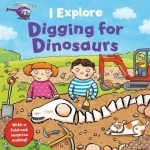
I Explore Digging for Dinosaurs
Kate Daubney and Mike Goldsmith
Book
A collectible board book series with a non-fiction twist: toddlers have mini adventures and explore...
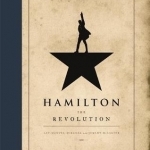
Hamilton: The Revolution
Lin-Manuel Miranda and Jeremy McCarter
Book
Winner of the 2016 Pulitzer Prize for Drama Goodreads best non-fiction book of 2016 From Tony...
Sarah (7800 KP) rated Unnatural Causes: The Life and Many Deaths of Britain's Top Forensic Pathologist in Books
Oct 17, 2020
This book is truly a fascinating read. It’s an interesting mixture detailing Richard Shepherd’s personal life and the many cases he’s had involvement in over the years. It balances these two aspects very well, and I found I was as interested in his personal life as I was in the cases. It is the cases though that take precedence in this book and Shepherd really has left no stone unturned. There is an immense amount of detail in this about the deaths, bodies, medical terms and outcomes of the cases, and by the end of the book you feel completely satisfied that nothing has been missed.
Shepherd has had a truly impressive career, spanning a number of decades and quite a lot of high profile cases and inquests; Stephen Lawrence, Princess Diana, 9/11, 7/7, Derrick Bird, Harold Shipman. His involvement in all of these cases is impressive and with some, I’ve learnt a fair amount that I’d never known previously (i.e. Diana’s cause of death and the pathology side of 9/11). Shepherd is obviously a very knowledgeable and respected pathologist and it shows from his experience and his writing.
I may be biased as forensics, crime and pathology have always been an interest of mine (I did my dissertation at university on alternatives to traditional post-mortems), but this book is engaging, intriguing and beyond fascinating. I’d liken it to This is Going to Hurt by Adam McKay, obviously this is a lot more serious without the funny anecdotes but if you enjoyed the medical side then you’d probably enjoy this too.
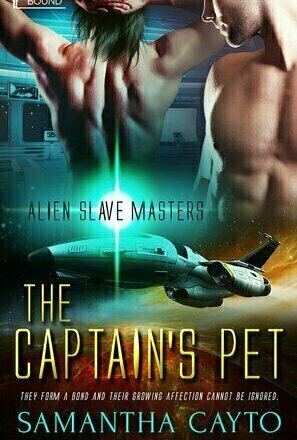
The Captain's Pet (Alien Slave Masters #1)
Book
When a distant planet’s ownership is in dispute, conquering aliens turn defiant human males into...
Science Fiction MM Erotic Romance BDSM
Merissa (13782 KP) rated Prophecy of the Mayan Undead in Books
Jan 5, 2021 (Updated Aug 7, 2023)
In the first half, Keisha and Yuri, along with their friends, Casimiro and Apolinar, are trying to stop a centuries-old vampire from taking over her mind and causing her to hurt innocents. You find out the whys and wherefores, mixed in with non-stop action and enough steam to melt your Kindle without taking away from the story. In the second half, although Keisha and Yuri still play a huge part, Niu Ying is a new character, along with Frank. These two also have a massive role in the forthcoming events.
I loved how it all blended together and gave me all the information I needed to understand the overall story arc. Keisha is intelligent, unashamedly so, and Yuri makes no bones about finding her mind attractive. Casimiro and Apolinar I wanted to dislike, simply because of their attitudes at the beginning. However, once they met Keisha, I couldn't help but like them and applaud their efforts to help.
The pacing was smooth, with action and love scenes mixed nicely together. The world-building was what you would expect from a paranormal/erotic/science fiction mix, and nothing stood out to me as being 'wrong'.
All in all, this was a great escape from reality and I have no hesitation in recommending it.
* A copy of this book was provided to me with no requirements for a review. I voluntarily read this book, and the comments here are my honest opinion. *
Merissa
Archaeolibrarian - I Dig Good Books!
Jan 5, 2021
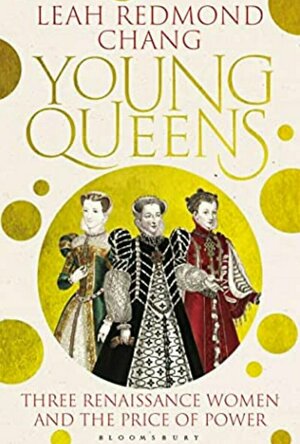
Young Queens: Three Renaissance Women and the Price of Power
Book
Sixteenth-century Europe: Renaissance masters paint the ceilings of Florentine churches, kings...
Non-fiction France Spain Scotland England 16th Century Europe
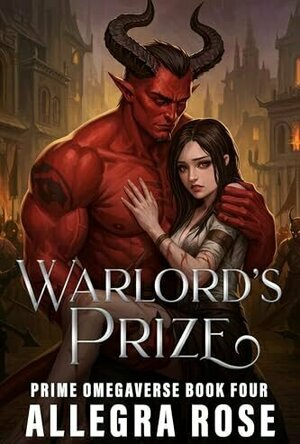
Warlord's Prize (Prime Omegaverse #4)
Book
She bargained herself for her people's survival. Now she's claimed by the most powerful oni warlord...
Monster Romance Omegaverse Science Fiction Dub Con Non Con Pregnancy Loss
BookblogbyCari (345 KP) rated A Short History of the World in Books
Aug 5, 2018
As I hoped, the book often reads like a novel, with 67 distinct sections, each like a mini story. In order to fit the history of the whole world into one book, by nature the story telling ranges from nice and rapid, to a little too rapid. I found it rather like a catalogue of numerous interesting little nuggets of information. Despite covering events from all over the world, the topics often flow seamlessly from one topic to the next. Due to so many overlapping topics, this history of the world isn't told in a linear purely chronological pattern, but has to go backwards a little, now and again.
At various times throughout, the stories are gripping and Wells successfully brings history to life. I particularly liked the various sections on religious leaders. Appropriately, Wells tackles religion as would any unbiased historian-become storyteller. I also enjoyed the beginning, where Wells paints a crystal clear picture of our solar system and the vast empty space that our dramas are within. His description of our galaxy sounds nothing short of beautiful.
The book was meant to be predominantly factual, but Wells did include a substantial amount of speculation and opinion. This does not distract from the storyline, but adds value in generating the concepts of the time periods.
It covers progress and prosperity as much as carnage and decimation, and provides good explanations of everything it covers. (Although it would benefit from more illustrations). At times it feels detail heavy but also gives the reader a feel for each age - the book is not limited to which country went to war with which country and when, but also examines changes in ways of thinking through the ages. Including the Ancient Greek philosophers, Arabian progress in maths and science, the advent of experimental science, and the development of political and social ideas in Wells’ time.
I was reassured to learn that despite not studying the history of the world in its entirety in school, I was already familiar with much of the book’s content. Having said that, there were also topics where I really felt I was learning something. I read Wells’ opinion on why the Roman Empire fell, and how the industrial revolution was not merely a revolution in machinery, but rather a revolution in how people conducted their everyday lives. There were also some important figures from history described that were never mentioned in my school days, particularly Charlemagne and Roger Bacon.
Towards the end of the book, Wells correctly predicts another war like that of the Great War. However his final message was one of faith and hope in humanity’s progress.
With such a huge scope, Wells must have struggled with deciding what topics to include and what to exclude. I thought he ought to have included a touch more detail on Ancient Egypt, and on the causes of the Great War (World War 1). As a British person myself I would have liked to have seen more on British history.
Likewise, if the book were written now rather than 1922 I began to speculate on what he would and wouldn’t have included. I imagine there would certainly be a section on World War 2, rockets into space, the internet, and 9/11. He would have provided an excellently conducted section on how humans are destroying the planet.
One of the beauties of this book has to be its availability. If you type “short history of the world” into Google, the free PDF of this book takes up much of the first 2 pages of results. If you’re sketchy on world history, this book will fill in the main blanks, and is worth a read if this is your aim, especially if you wish to do so quickly. The fact that it’s split up into so many succinct sections also means that you can pick up and put down the book as often as opportunity allows. It also works well as a reference book, as it does not need to be read from cover to cover in order to look up one particular event or time period.
In summary, this book would be a welcome addition to bookshelf (or ebook library) of the general non-fiction fan or historian.
Find more of my book review on www.bookblogbycari.com

Rosalind: DNA's Invisible Woman
Book
Rosalind: DNA’s Invisible Woman tells the true story of the woman who discovered the structure of...
Historical Fiction Narrative Non Fiction

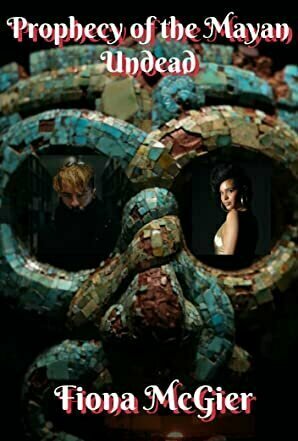
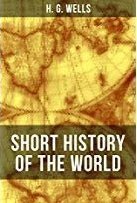
Sarah (7800 KP) Oct 18, 2020
AJaneClark (3975 KP) Oct 18, 2020